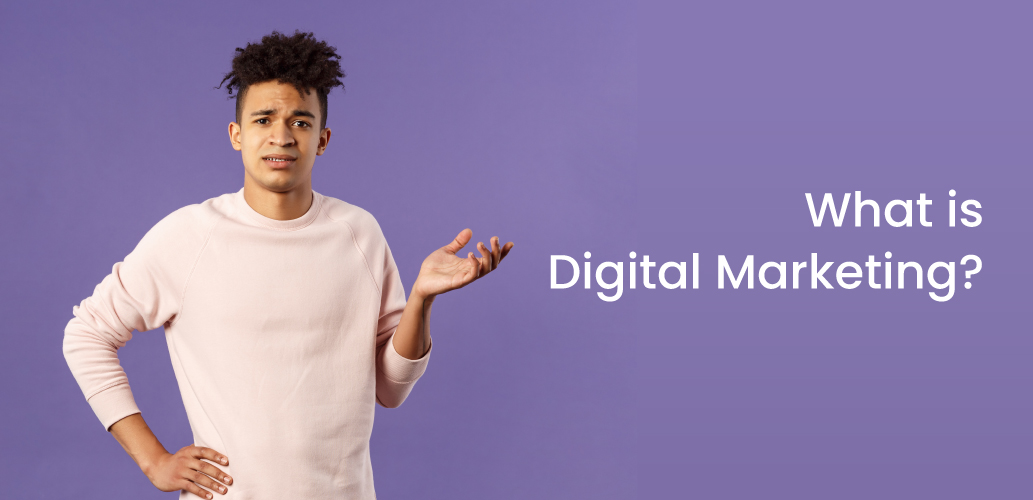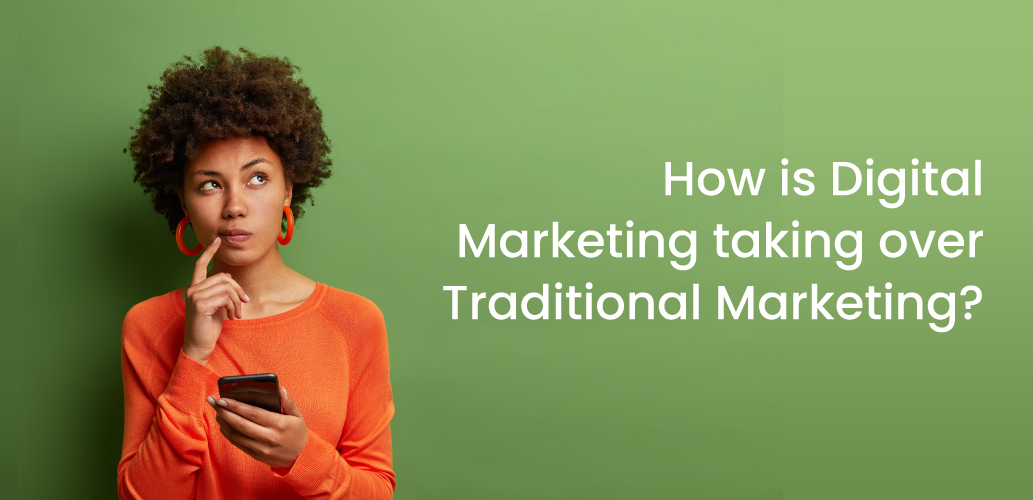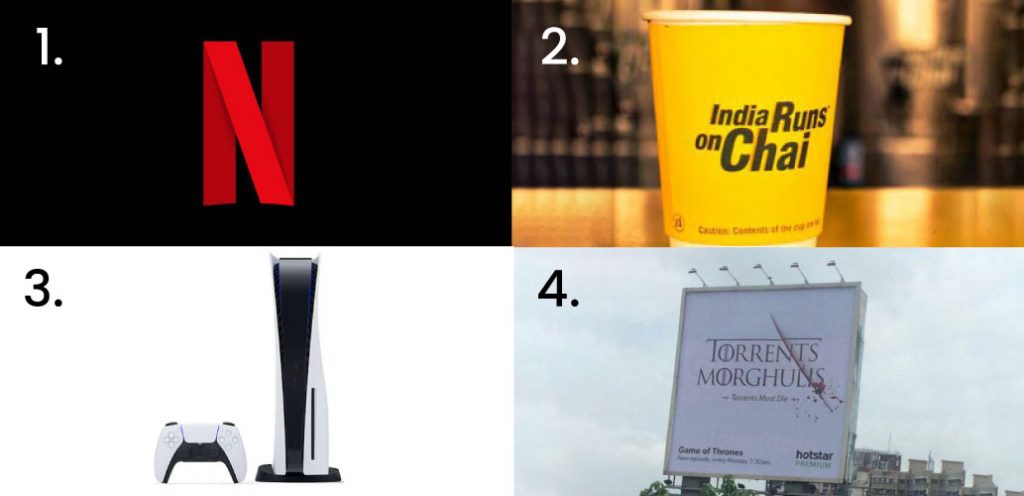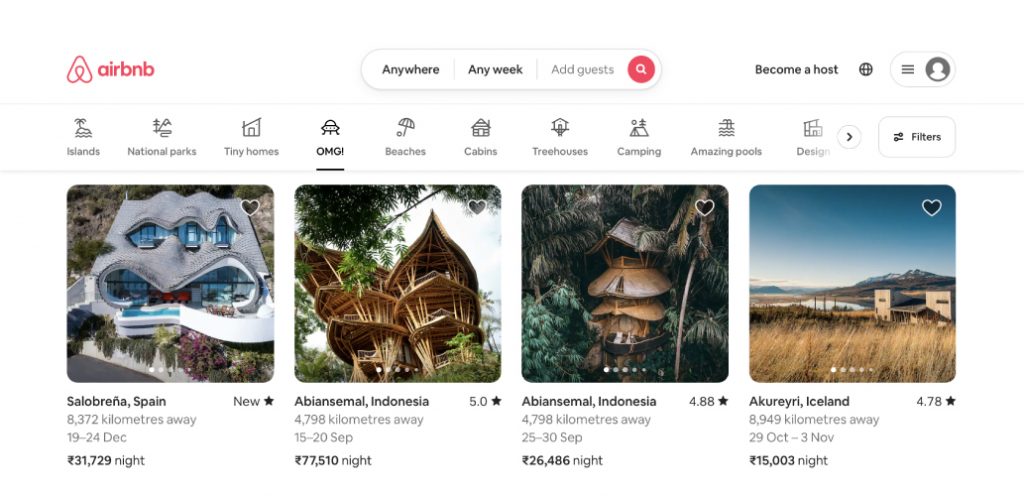Importance and Scope of Digital Marketing for Online
The Main Types of Digital Marketing
How is Digital Marketing taking over Traditional Marketing?
Why is Digital Marketing Important for the Future?
The Scope of Branding and Digital Marketing as a Career
Frequently Asked Questions (FAQs)
- Why is marketing important in online business?
- What is the importance of digital marketing in India?
- What is digital marketing for e-commerce?
- What is the scope of digital media?
- What is the scope of digital marketing in the current business scenario?
Digital marketing for online business plays a significant role in the success of any brand. In today’s digital landscape, it can be considered the heartbeat of modern advertisement and product promotion. This is an innovative and powerful tool that can help companies grow and reach new potential customers.
Increasingly, companies have started to recognize the scope and humongous potential of online advertising. With the rise in digital marketing for online business, there has been a subsequent rise in demand for talent who can leverage its power. This has led to an influx of students enrolling in online marketing courses to prepare better for a prosperous future.
What is Digital Marketing?

A revolutionary new tool, digital marketing can be considered an art! The art of advertising a company’s products and services through different virtual channels. These products could be promoted through social media, online websites, email, and many more such avenues. The primary goal of digital marketing is to connect potential customers to your business in an engaging and meaningful manner to boost engagement and drive sales.
But did you know that digital marketing is actually an umbrella term, under which is a whole spectrum of unique marketing techniques? Let’s delve deeper into the main types of digital marketing for online business.
The Main Types of Digital Marketing

Here are the five predominant types of digital marketing for online business that are most popular and useful.
-
Search Engine Optimisation
Search Engine Optimization or SEO optimization entails taking certain steps to improve your brand website’s visibility on Google and other such search engines. The philosophy of SEO optimization is simple, and can be explained using a quick example.
Suppose you wish to find the best restaurant to order food from. Typing out ‘best restaurant’ on Google will give you hundreds of results, but you are most likely to select only the first link. Hence the owner of the restaurant that ranks first on the SERP (Search Engine Results Page) is bound to get the most traffic, and thus the most sales.
This is SEO optimization. The goal is to rank as high as possible on the results page to garner more organic traffic to your website. The tips and tricks you require to achieve this feat are central to digital marketing for online business, and can go a long way in boosting sales without having to pay for advertising.
-
Content Marketing
Next up, let’s examine content marketing. Content marketing ties in very well with SEO optimization. This is because content marketing pertains to creating relevant and meaningful content on your website that aims to engage audiences and attract more readers. This content can then be optimised using keywords to ensure that it ranks higher up in the SERP.
This form of digital marketing for online business is highly useful in demonstrating your company’s expertise in a particular domain, and is responsible for enhancing brand awareness. Content used for this type of marketing can be in the form of videos, reels, infographics, and more.
-
Email Marketing
To everyone who thinks emails are outdated, we have some news for you! Email marketing is actually quite an important tool for digital marketing for online business, and is regularly leveraged by brands even today.
Email marketing serves as a personal connection between your online business and the customer. To reach potential customers, companies can send targeted emails to a list of subscribers. This has the potential for building relationships, promoting products and services. Additionally, this enables directly connecting with your users, fostering better relationships and keeping them informed about your latest products. With carefully crafted email campaigns, you can drive higher sales as well as loyalty among your customer base.
-
Pay Per Click
Pay Per Click (PPC) is an advertising style akin to putting up billboards on your different websites. It is a strategy that provides immediate visibility for your brand or company. This is a form of digital marketing for online business where advertisers pay a fee each time their ads are clicked on by users. Search engine advertising is the most common form of PPC advertising, and the most popular example is Google ads.
By bidding on specific keywords, PPC marketing ensures that a company’s products or services are on the front and centre of a person’s search, when potential customers try and research relevant terms or keywords.
-
Affiliate marketing
The form of digital marketing for online business is affiliate marketing. We can wrap up affiliate marketing in just one word. Want to know which? It’s “influencer”!
That’s right. An influencer is just an affiliate that promotes your company’s products or services, usually for a fee. This form of digital marketing for online business involves collaborating with popular figures who encourage their fan base to try out your products or services, using their digital reach.
How is Digital Marketing taking over Traditional Marketing?

Conventional marketing is a relic of the days gone by. It involves newspaper advertisements, posters, print media, billboard advertisements, and radio broadcasting among many others. While these mediums were helpful, the new age of digital marketing is here.
Digital marketing for online business is rapidly overtaking these traditional methods in several essential ways, and fundamentally changing how brands promote their offerings and attract customers. Here’s five reasons why digital marketing is succeeding over traditional marketing.
-
The reach
One of the greatest benefits of digital marketing for online business is its reach. Most forms of conventional marketing like billboards and hoardings are geographically restricted. Digital marketing is different. It allows brands to reach a global audience, and increases the potential for garnering new customers.
Through online channels like webpages, social media, and search engines, you can connect with new users anywhere in the world.
-
The cost
Traditional forms of marketing relied heavily on print media. Printing is extremely capital intensive, as well as ecologically unsustainable in the long run. Since digital marketing doesn’t involve any printing, it helps save profit margins by a lot.
Online advertising platforms thus allow companies to use those resources in more appropriate areas. Furthermore, digital marketing also allows real-time monitoring of your marketing campaign as well, which means you can alter/fix customer issues immediately without losing too much money.
-
Versatility
Digital marketing for online business allows companies to use a wide range of different options and tactics to attract their customers, such as content marketing, pay-per-click advertising, social media, and email marketing. Additionally, it also gives versatility in the way these are optimised, for example, using reels, or video packages.
Print media and other traditional forms don’t offer the same flexibility. Companies can use pop culture in real time to leverage higher engagement through likes and reports as well. This versatility is also essential as it allows businesses to tailor their strategies to their specific target audience and goals, so companies can offer particular campaign ads to particular demographics, increasing their chances of success.
-
Interactivity
Digital marketing for online business fosters direct engagement with their audience. Social media platforms, for instance, enable real-time feedback on posts and stories which can be really helpful for brands. They can implement interactive and engaging content like online polls, quizzes, hashtags and even live streaming to boost engagement as well as customer participation in their campaign. When users feel involved, they are more likely to shop from that particular brand over its peers, driving higher sales.
-
Results
Digital marketing allows companies to experiment with different advertisements and be more creative in their content, and strategies to find what works best. Because of the real-time nature of social media websites, campaigns which are popular will go trending while those which aren’t will not get much engagement. This iterative approach can lead to continuous improvements in campaign performance to find out what works best.
That said, this is not to diminish the importance of Traditional Advertising, which is important in its own right. However, it’s clear how Digital Marketing benefits brands today.
Why is Digital Marketing Important for the Future?

If the above points aren’t reason enough for you to believe that the benefits of digital media are vital for all businesses in the future, we have a lot more advantages to give you.
Post the pandemic, the merits of e-marketing really paid off and there was a sharp rise in spend overall in Digital Marketing, with an increase of over 22% in budgets from 2020 to 2022. This goes to prove that even the largest and most established companies are restructuring their traditional Advertising budgets and giving Digital Media promotion more focus than before. Apart from the convenience of Digital Marketing and all it’s remote capabilities, these could be the other possible online advertising benefits, making it everyone’s hot pick:
- Digital Marketing helps you to effectively target your audience. Even if you don’t have the clearest idea of your target audience, you can use Digital Marketing tools to extract data and see what group of people work best for you, as an audience. You can then best align your marketing strategy with their needs, and going forward you can base all your marketing efforts around them, saving a lot of time and energy.
- Further, digital marketing benefits brands and allows them to choose from a wide range of content with ease. Using different content buckets you can build a solid digital media plan to effectively reach your target audience on multiple platforms, with each platform being optimised in different ways. This gives you the freedom to explore and experiment with various digital marketing trends.
- As new technologies constantly come into the market, the possibilities with Digital Marketing are just going to increase and people are just going to push the envelope of what is creatively possible. Digital Marketing may have come into the forefront because of the pandemic, however, now that people have started to realise its importance, its presence is only going to dominate the market more.
The Scope of Branding and Digital Marketing as a Career

As our lives adapt to the new post-pandemic landscape, digital marketing for online business has surged to the forefront. Companies are actively seeking out digital marketing experts to take on pivotal roles and manage the responsibilities that come with the profession.
In terms of career prospects, the field of digital marketing offers a vast scope, with high demand for professionals possessing specific skill sets. Students can imbibe these skills by enrolling in online marketing courses to better prepare for these positions of responsibility.
Digital marketing courses with placement will help students improve their CV and enhance their skill sets. While there are lots of digital marketing courses online, the best digital marketing course will be the ones which have all the most sought-after skills in the digital marketing arena today. These skills are:
- Video Production
- Content Marketing
- Data Analytics
- Search Engine Optimization
- Copywriting
- Pay per click
- Graphic Designing
Now that you have a fair idea of what skillsets are prioritised, you can work on them and get jobs in the following positions:
- Digital Marketing Manager
- Search Engine Optimizer
- Social Media Marketer
- Content Marketer
- Email Marketer
- SEM Specialist
- SEO Specialists for Voice Assistants (Alexa, Siri etc.)
- Video Producers
- Data Analyst
Final Thoughts

With over 30% of the world’s population (too many zero’s to count) being connected online, reaching them there just makes sense from a brand’s perspective. Adding technology to age old web marketing strategies is the smart route to take for brands that want to stay relevant in the long run.
The demand for Digital Marketing makes it a highly competitive field, starting your career earlier itself, in this field, is best. Check out our digital marketing courses online which are especially curated for freshers and makes use of blended learning for the most effective way to pick up new skills.
If you think this blog was helpful leave us a comment below and stay tuned for more such content.
Happy learning!
Related : 10 Tips on How to Advance Your Digital Marketing Career
Frequently Asked Questions (FAQs)
1. Why is marketing important in online business?
A: Marketing is fundamental for online brands and businesses because it allows them to reach their target audience, increase brand awareness, and boost sales. Marketing strategies offer companies an opportunity to stand out from the crowd. Their goal is to engage with customers and maintain a strong presence to drive brand loyalty and retention.
Marketing is fundamental for online brands and businesses because it allows them to reach their target audience, increase brand awareness, and boost sales. Marketing strategies offer companies an opportunity to stand out from the crowd.
2. What is the importance of digital marketing in India?
A: Digital marketing for online business plays a pivotal role in this country. This is down to its large pool, and increasing internet connectivity of the masses. Digital marketing thus offers a lesser capital intensive way for brands to tap into this population pool and connect with a wide and diverse range of customers.
3. What is digital marketing for e-commerce?
A: Digital marketing for e-commerce pertains to the online marketing strategies which are specifically used for virtual retail businesses. It includes tools such as SEO optimization, PPC advertising, email/social media marketing and content marketing. These tools harness the power of digital marketing to convert online customers into sales.
4. What is the scope of digital media?
A: The scope of digital media in India is huge to say the least. And it is still in its infancy. Digital media encompasses various different forms of online content, such as videos, images, reels and podcasts. Thus the scope of digital media is vast and prosperous.
5. What is the scope of digital marketing in the current business scenario?
A: The scope of digital marketing in the current business landscape is immense. Brands are increasingly shifting their marketing strategies to harness the power of digital advertising. Their cost-effectiveness and ability to attract a larger customer audience is enough for companies to want to leverage its benefits.
The demand for digital marketing professionals is thus skyrocketing. Whether it’s SEO optimising roles, content development or data analytics, this is a field with continuous growth and innovation. This makes it a promising field to pursue a career in.
Disclaimer: The success of job placement / interview opportunity depends on various factors including but not limited to the individual’s qualifications, experience, and efforts in seeking employment. Our organization makes no guarantees or representations regarding the level or timing of job placement / interview opportunity. Relevant terms and conditions will apply for any guarantee provided by upGrad.
































